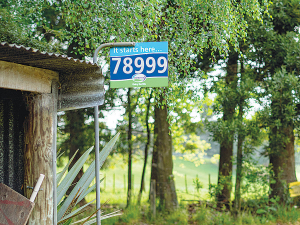Dairy
Dairy commodity markets have shifted lower as coronavirus impacts global logistics and sentiment. Average WMP prices have dipped around 6% since mid-January 2020.
Despite this, Fonterra recently reaffirmed their forecast farmgate milk price range of NZ$ 7.00/kgMS to 7.60/kgMS. For now, Rabobank’s farmgate milk price forecast of NZ$ 7.60/kgMS still stands, but we note there is risk to this number. New Zealand’s 2019/20 milk production continues to fall behind the prior season.
The 2019/20 season-to-date collections are now trailing half a percent behind last season. We expect February 2020 data to illustrate further pressure on milk collections.
Beef
Farmgate prices stabilised late February for the first time since early December, signalling prices may be approaching their floor following a steep decline over the last three months.
However, the continuing impact of coronavirus on Chinese import demand and high levels of domestic cattle supplies due to low feed levels do have the potential to put further downward pressure on prices over the next month.
Supply chain disruptions in China caused by coronavirus coincided with New Zealand’s seasonal increase in cattle production, with the lift in this season’s production higher than normal due to dry conditions in the North Island and upper South Island.
With suppressed demand from China occurring at a time when domestic supplies exceeded local processing capacity, farmgate prices have been under strong downward price pressure for most of 2020.
As of the start of March, the North Island bull price is 13% lower MOM, averaging NZ$ 4.70/kg cwt, with the South Island bull price down 11% MOM to NZ$ 4.65/kg cwt.
Anecdotal evidence suggests that logistics in China are improving, indicating the worst of the supply chain disruption issues may have passed, although it is still unclear how long it will be before Chinese import demand returns to normal.
Sheepmeat
Rabobank expects prices to remain under some further downward pressure in March, with dry conditions in the North Island and upper South Island forcing farmers to continue offloading stock at a higher-than-normal rate during the season’s peak production period.
An oversupply of lambs, combined with reduced demand from China due to coronavirus, saw farmgate prices fall sharply in February. As of the start of March, the slaughter price in the North Island averaged NZ$ 6.90/kg cwt (7% down MOM), while South Island lamb averaged NZ$ 6.80/kg cwt (9% down MOM).
These pricing levels are largely in line with where they were at this stage last year.
With coronavirus disrupting Chinese demand for lamb over the last month, New Zealand exporters were forced to redirect China-bound product to alternative markets at discounted prices.
Given China is still predominately a low-value cut market for New Zealand lamb exports, and pricing in other key markets is holding up relatively well, the downward effect on overall export returns is limited.
Exporters do not have the luxury of strong alternative markets for mutton, with China accounting for approximately 80% of New Zealand’s mutton exports.
This has resulted in processors prioritising lambs over ewes, making killing space for ewes difficult to come by and driving prices down 17% MOM. Killing space for ewes is likely to remain tight over the coming month as lamb supplies hit peak levels.
Horticulture
Coronavirus brings complications for exporters of crops with a high reliance on China, such as pip fruit and kiwifruit. In 2019, China accounted for around 16% and 25% of total export receipts, respectively, for these crops.
Despite indications that port access is freeing up, Rabobank expects softening of in-market prices in China for key fresh produce exports for the balance of Q1.
This is not from a lack of demand, rather supply chain disruptions continue to impact ability to ship produce to consumers.
The depth of this price impact after Q1 remains uncertain and is highly dependent upon the timeframe it takes China to contain the virus.
Q1 and Q2 2020 will bring market trading conditions that will test the depths of alternative markets to New Zealand’s number one fresh produce export destination, China. In addition to China, the spread of coronavirus and its impacts to other key markets in Asia will influence demand across the balance of Q1 and into Q2 2020.
Rabobank expects that supply diverted to markets outside of China, where that produce is not unseasonal, will result in reduced local market prices bringing downside to total export receipts for the second half of the export year to June 2020.
Exchange rate
The New Zealand dollar will likely head to USc 60 if coronavirus takes off again in China or it becomes a global pandemic.
Both scenarios are entirely possible. With markets awakening to the prospect of a global pandemic, traders abandoned NZ$ investments for safe haven assets in the US.
Yields on 10-year US Treasury bonds below 1% by early March, an all-time low and down from 2.75% just one year prior.
The New Zealand dollar fell to USc 62.93 on 4th March, down from USc 65.27 at the end of January.
Despite its recent smashing, the currency could still slip even further against the US dollar over the next 12 months if either infection rates start to rise again in China or if the infection rates seen in Italy and South Korea are replicated in major economies like the US and Japan.
Conversely, the New Zealand dollar may yet rise against the US dollar if the situation in China continues to improve and its spread beyond China remains limited.
• Content supplied by Rabobank.



















